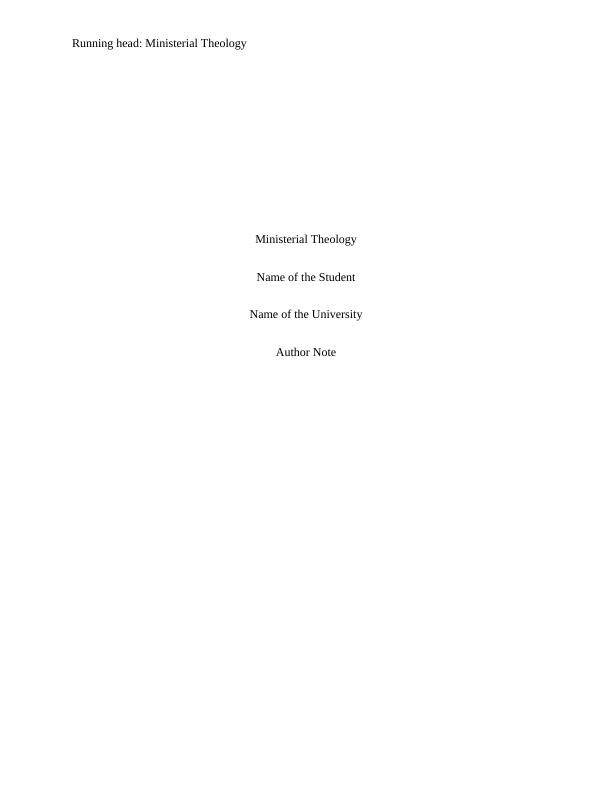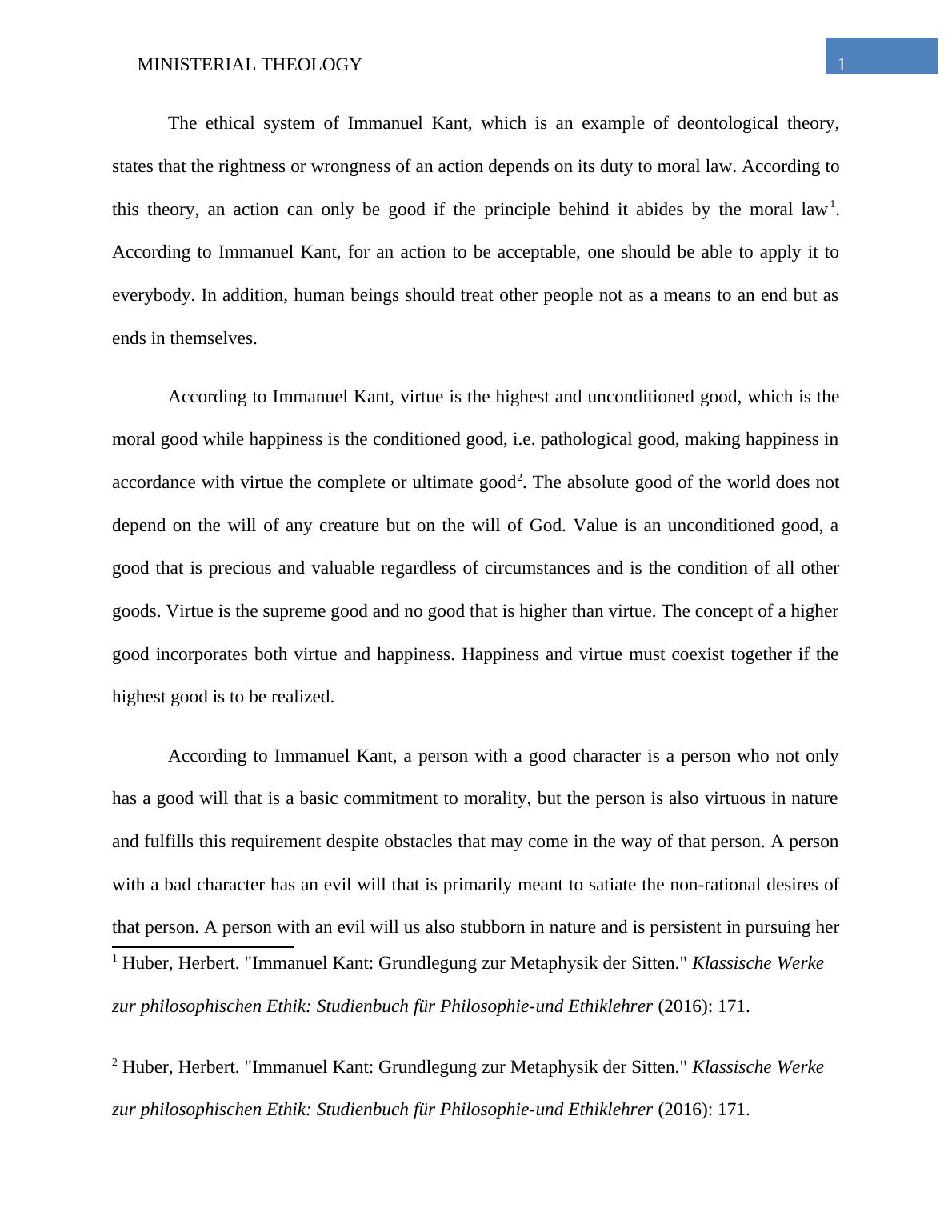Ministerial Theology - An Analysis of Immanuel Kant's Ethical System
Added on 2023-05-29
5 Pages1188 Words221 Views
Running head: Ministerial Theology
Ministerial Theology
Name of the Student
Name of the University
Author Note
Ministerial Theology
Name of the Student
Name of the University
Author Note

1MINISTERIAL THEOLOGY
The ethical system of Immanuel Kant, which is an example of deontological theory,
states that the rightness or wrongness of an action depends on its duty to moral law. According to
this theory, an action can only be good if the principle behind it abides by the moral law 1.
According to Immanuel Kant, for an action to be acceptable, one should be able to apply it to
everybody. In addition, human beings should treat other people not as a means to an end but as
ends in themselves.
According to Immanuel Kant, virtue is the highest and unconditioned good, which is the
moral good while happiness is the conditioned good, i.e. pathological good, making happiness in
accordance with virtue the complete or ultimate good2. The absolute good of the world does not
depend on the will of any creature but on the will of God. Value is an unconditioned good, a
good that is precious and valuable regardless of circumstances and is the condition of all other
goods. Virtue is the supreme good and no good that is higher than virtue. The concept of a higher
good incorporates both virtue and happiness. Happiness and virtue must coexist together if the
highest good is to be realized.
According to Immanuel Kant, a person with a good character is a person who not only
has a good will that is a basic commitment to morality, but the person is also virtuous in nature
and fulfills this requirement despite obstacles that may come in the way of that person. A person
with a bad character has an evil will that is primarily meant to satiate the non-rational desires of
that person. A person with an evil will us also stubborn in nature and is persistent in pursuing her
1 Huber, Herbert. "Immanuel Kant: Grundlegung zur Metaphysik der Sitten." Klassische Werke
zur philosophischen Ethik: Studienbuch für Philosophie-und Ethiklehrer (2016): 171.
2 Huber, Herbert. "Immanuel Kant: Grundlegung zur Metaphysik der Sitten." Klassische Werke
zur philosophischen Ethik: Studienbuch für Philosophie-und Ethiklehrer (2016): 171.
The ethical system of Immanuel Kant, which is an example of deontological theory,
states that the rightness or wrongness of an action depends on its duty to moral law. According to
this theory, an action can only be good if the principle behind it abides by the moral law 1.
According to Immanuel Kant, for an action to be acceptable, one should be able to apply it to
everybody. In addition, human beings should treat other people not as a means to an end but as
ends in themselves.
According to Immanuel Kant, virtue is the highest and unconditioned good, which is the
moral good while happiness is the conditioned good, i.e. pathological good, making happiness in
accordance with virtue the complete or ultimate good2. The absolute good of the world does not
depend on the will of any creature but on the will of God. Value is an unconditioned good, a
good that is precious and valuable regardless of circumstances and is the condition of all other
goods. Virtue is the supreme good and no good that is higher than virtue. The concept of a higher
good incorporates both virtue and happiness. Happiness and virtue must coexist together if the
highest good is to be realized.
According to Immanuel Kant, a person with a good character is a person who not only
has a good will that is a basic commitment to morality, but the person is also virtuous in nature
and fulfills this requirement despite obstacles that may come in the way of that person. A person
with a bad character has an evil will that is primarily meant to satiate the non-rational desires of
that person. A person with an evil will us also stubborn in nature and is persistent in pursuing her
1 Huber, Herbert. "Immanuel Kant: Grundlegung zur Metaphysik der Sitten." Klassische Werke
zur philosophischen Ethik: Studienbuch für Philosophie-und Ethiklehrer (2016): 171.
2 Huber, Herbert. "Immanuel Kant: Grundlegung zur Metaphysik der Sitten." Klassische Werke
zur philosophischen Ethik: Studienbuch für Philosophie-und Ethiklehrer (2016): 171.

End of preview
Want to access all the pages? Upload your documents or become a member.
